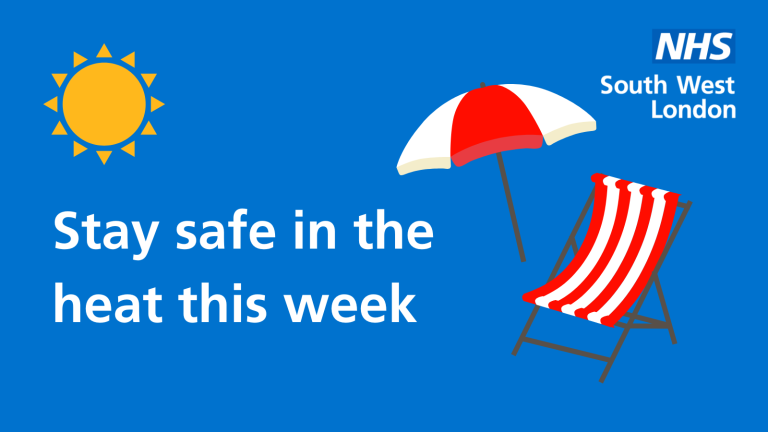People are been admitted to hospital because of heat-related including severe sunburn, heat exhaustion and sun and heatstroke.
Getting out and about in the hot weather can also trigger allergies, with some people admitted to hospital due to the effects of pollen and or being stung by wasps, hornets, and other insects.
The risk of serious illness is much higher for the elderly, children and young people, and those who already have health conditions, including heart and breathing problems.
Those with less serious conditions are encouraged to ‘talk before they walk’, by getting advice from the free NHS 111 phone and online service to check symptoms and decide on the best course of action.
People with minor injuries or mild conditions which can be better dealt with at home or with over-the-counter remedies and advice from community pharmacists are reminded not to go to A&E and call NHS 111 if they are unsure.
Dr Vasa Gnanapragasam, lead GP for Merton, said: “I hope everyone has fun in the sun but please remember that it’s important to look after yourself and others in scorching temperatures.
“With millions of people out and about over the next few days, it’s important to take common sense precautions and follow our NHS top tips like drinking plenty of water, using high-factor sunscreen and taking allergy medicine where it’s needed.
“The NHS will be there always for anyone who needs it, but everyone can help by checking in on vulnerable friends and neighbours, while making use of the free, convenient and helpful phone and online NHS services for minor illnesses, to help frontline staff provide care for those in emergency and serious need.
“People should talk before they walk and join the hundreds of thousands getting fast and free advice on the best course of action for them from the NHS.uk website or 111 phone line.”
Tips for coping in hot weather, available on nhs.uk:
- look out for those who may struggle to keep themselves cool and hydrated – older people, those with underlying health conditions and those who live alone are particularly at risk
- stay cool indoors – many of us will need to stay safe at home this summer so know how to keep your home cool
- close curtains on rooms that face the sun to keep indoor spaces cooler and remember it may be cooler outdoors than indoors
- if going outdoors, use cool spaces considerately, keep your distance in line with social distancing guidelines
- follow coronavirus social distancing guidance and wash your hands regularly
- drink plenty of fluids and avoid excess alcohol
- never leave anyone in a closed, parked vehicle, especially infants, young children, or animals
- try to keep out of the sun between 11am to 3pm
- walk in the shade, apply sunscreen regularly and wear a wide brimmed hat, if you must go out in the heat
- avoid exercising in the hottest parts of the day
- make sure you take water with you if you are travelling
- if you are going into open water to cool down, take care and follow local safety advice
If you have concerns about an uncomfortably hot house that’s affecting your health or someone else’s get medical advice. You can also get help from the environmental health office at your local authority. They can inspect a home for hazards to health, including excess heat.
